
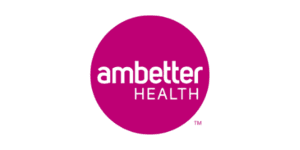

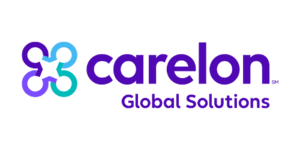
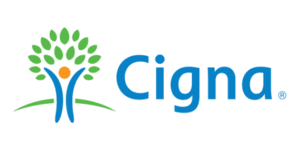


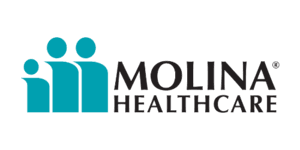
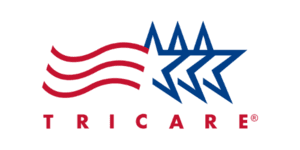

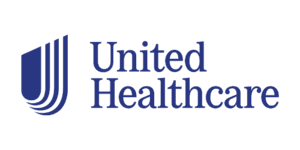
We Accept Most Major Health Insurance
Apex Recovery Tennessee is a trusted provider specializing in Obsessive-Compulsive Disorder (OCD) treatment. With our licensed and accredited behavioral health facilities, we are dedicated to delivering high-quality care tailored to the needs of each individual. Located within easy reach of cities like Nashville, Memphis, Knoxville, Clarksville, and Murfreesboro, Apex Recovery makes it certain that there are accessible mental health treatment options across the state. We accept private health insurance and can even verify your insurance coverage on your behalf, providing a streamlined and supportive experience for those seeking help.
If you or someone you love is navigating the challenges of OCD, reach out to Apex Recovery Tennessee today. Call us today at (615) 703 4639, our caring team is here to answer your questions clearly, check your insurance coverage, and guide you towards a supportive, personalized treatment plan. Take the first step toward healing and a brighter future by contacting us now; we are ready to help.
Check Your Insurance
with Apex Recovery
At Apex Recovery we accept insurance to make Obsessive-Compulsive Disorder (OCD) mental health treatment more accessible to you. Our qualified team can help check your coverage levels and provide detailed information about how your healthcare plan applies to the care we offer, making sure you have clarity every step of the way.

What is Private Health Insurance Coverage?
Private health insurance coverage is a type of insurance plan purchased individually or provided through an employer. It helps cover the costs of healthcare services, making treatments and medications more affordable. For many, private insurance provides access to a wide network of doctors, specialists, and facilities.
Many private insurance plans include mental health coverage like therapy for Obsessive-Compulsive Disorder (OCD). Each plan can differ in health benefits, so it’s important to understand your specific policy’s details thoroughly, such as deductibles, limits, and out-of-pocket costs. If you are aware of what your insurance covers, it will make sure you can maximize your access to the care you need.
Check Your Health Insurance Coverage
"*" indicates required fields
Does Insurance Cover Assessments for Obsessive-Compulsive Disorder?
Yes, Obsessive-Compulsive Disorder (OCD) assessments are frequently covered by insurance as part of the treatment process, though the extent of coverage varies by your chosen healthcare plan and insurance provider. Certain mental health treatment plans might require out-of-pocket expenses like co-pays or deductibles, while others might offer complete coverage. To find out what healthcare services are covered, you must review your particular insurance policy.
At Apex Recovery Center in Tennessee, we make the process easier by offering free and confidential OCD assessments as part of our treatment admissions process. Our team of experts is here to provide clear guidance on insurance coverage and help you take the first steps toward effective, personalized care. Contact our qualified team at (615) 703 4639 to learn more about verifying your insurance.
Does Health Insurance Cover Inpatient OCD Treatment in Tennessee?
Yes, inpatient treatment for obsessive-compulsive disorder (OCD) is typically covered by health insurance; however, the extent of coverage can differ depending on your plan and provider. While some policies may have co-pays, deductibles, or time limits on care, others may cover all of the expenses. To fully understand your health benefits, it’s critical to go over the details of your plan with your insurance provider.
Inpatient residential rehab for OCD in Tennessee offers structured care in a supportive, controlled environment. Residential rehab programs provide 24/7 access to mental health professionals, individualized therapies, and a safe space to focus solely on recovery from mental health disorders. At Apex Recovery, we are strongly committed to helping clients access the right inpatient OCD treatment they need while also guiding them through the insurance process.
Does Health Insurance Cover Outpatient OCD Treatment in Tennessee?
Yes, outpatient treatment for obsessive-compulsive disorder (OCD) may be covered by health insurance, though the amount of coverage can vary according to your healthcare plan and provider. Outpatient care may be completely covered by some policies, while others may have deductibles or co-pays. To properly understand all aspects of your coverage, it is essential to review your insurance plan.
For OCD, outpatient treatment options such as Partial Hospitalization Programs (PHP) and Intensive Outpatient Programs (IOP) offer flexible yet efficient care. While receiving structured support through therapy and other resources, such treatment services enable participants to continue with their daily obligations. A variety of outpatient services are available from Apex Recovery Tennessee to meet your specific recovery requirements.
Private OCD Treatment Centers in Tennessee That Accept Insurance
Private OCD treatment centers in Tennessee provide accessible, high-quality care by accepting health insurance plans. Private mental health treatment facilities allow people to receive specialized treatment for Obsessive-Compulsive Disorder without the financial barriers. At Apex Mental Health Recovery, we offer exceptional OCD treatment centers designed to meet diverse recovery needs.
- Apex Recovery Brentwood: 209 Ward Cir, Brentwood, TN 37027
- Apex Recovery Columbia: 2710 Trotwood Ave STE A & B, Columbia, TN 38401
How to Find Obsessive-Compulsive Disorder Recovery Centers Near Me That Take Insurance
Finding OCD recovery centers that accept insurance guarantees access to quality care without financial stress. By taking the right steps, you can identify reputable mental health facilities and confirm your coverage options, helping you start your recovery journey with confidence.
- Use Local Search Terms to Find OCD Rehab Centers Near You: Use keywords like “OCD treatment near me” or “OCD rehab in Tennessee” to find nearby centers. Including terms like “insurance accepted” can refine your search.
- Visit the Facility’s Website to Check Insurance Information: Mental health facilities in cities like Nashville, Brentwood, and Columbia often share detailed insurance options on their websites. By researching online it will make sure you’re thoroughly informed before reaching out.
- Call the OCD Rehab Facility to Discuss Your Needs: Contacting the facility directly allows you to ask questions about programs and insurance coverage.
- Check for Accreditation Like Joint Commission Certification: High care and safety standards are met by accredited facilities. To make sure you’re picking a reliable, insurance-approved OCD rehab center in Tennessee, look for certifications like Joint Commission Approval.
- Confirm Apex Recovery Takes Insurance: Apex Recovery accepts insurance to make OCD treatment more accessible. With treatment facilities in Brentwood and Columbia, we’re committed to providing life-changing care for all our clients.
Free OCD Assessment
Does Health Insurance Cover Therapy and Counseling for OCD?
Yes, counseling and therapy for obsessive-compulsive disorder (OCD) are commonly covered by health insurance. However, the specifics of your plan and your insurance provider will determine the extent of coverage. You can avoid unnecessary financial strain and get the support you require by being aware of your coverage options.
Group sessions, individual counseling, and evidence-based techniques like Cognitive Behavioral Therapy (CBT) and Dialectical Behavior Therapy (DBT) are examples of therapy options that may be covered by insurance. Such approaches to therapy aim to improve your general mental well-being and assist you in effectively managing your OCD symptoms. To find out what is covered by your healthcare plan, always check with your provider.
Does Insurance Cover ERP Therapy for OCD?
Yes, insurance typically covers Exposure and Response Prevention (ERP) therapy for Obsessive-Compulsive Disorder (OCD). However, coverage levels can vary greatly depending on your insurance provider and specific plan. It’s important to review your policy or contact your insurer to understand thoroughly the health benefits available to you for ERP therapy.
At Apex Recovery Tennessee, we create tailored programs to match your unique needs and coverage levels. Our friendly staff make it certain that you receive personalized care that aligns with your insurance plan, helping you focus on recovery without the added stress of navigating costs. Contact us at (615) 703 4639 to learn more about how we can support you.
Does Health Insurance Cover Obsessive-Compulsive Disorder Medication?
Yes, Obsessive-Compulsive Disorder (OCD) medication is typically covered by insurance for mental health disorders. The scope of coverage, however, varies depending on your insurance company and particular plan. You can learn more about the advantages and out-of-pocket expenses of OCD medication by going over your policy or getting in touch with your insurer.
Selective serotonin reuptake inhibitors (SSRIs), such as sertraline (Zoloft) or fluoxetine (Prozac), are common drugs that could potentially be covered. In order to effectively manage OCD symptoms, a medical professional will usually prescribe these drugs as part of a customized treatment plan. For precise coverage details, always check with your provider.
Does Insurance Cover Retreats for Obsessive-Compulsive Disorder?
Yes, it generally does, but according to your insurance company and particular plan, coverage for OCD retreats may range significantly. Even though some treatment plans might cover this specialized care, it’s crucial to check your policy or speak with your insurer to fully understand your health benefits.
At Apex Recovery, we conduct a free assessment to determine the best course of treatment for your specific needs. To guarantee you get the best support possible, our healthcare team develops a customized care plan while attempting to optimize your insurance benefits. To discuss your options for OCD treatment, contact us today.
Common OCD Treatment Programs in Tennessee Covered by Health Insurance
Tennessee offers a range of treatment programs designed to help people manage Obsessive-Compulsive Disorder (OCD), many of which are covered by health insurance. OCD treatment options accommodate diverse needs, from individual therapy to intensive outpatient care, making it certain there is well-rounded and effective support. Below, we’ll explore some of the common treatment options available throughout the state.
Inpatient Treatment for Severe Anxiety Disorders
Inpatient treatment provides 24/7 care in a structured and supportive environment. Patients have access to therapy, medical attention, and round-the-clock monitoring, which guarantees they have the tools necessary to concentrate on their recovery journey that is free from outside stressors or distractions.
For people with severe anxiety disorders, inpatient treatment offers intensive, personalized support to address overwhelming symptoms. It provides a safe space to explore triggers and develop coping strategies through therapy, helping patients regain control and build resilience for long-term recovery.
Residential Programs for Intrusive Thought Recovery
Residential programs provide long-term, immersive care in a highly supportive environment designed to help OCD sufferers recover. Residents live on-site and take part in structured daily activities, therapeutic sessions, and group support, improving growth and healing in a focused community setting.
For people struggling with intrusive thoughts, residential treatment plans offer personalized therapy and targeted coping strategies to manage and reduce their intensity. By addressing the underlying triggers in a safe and controlled space, people can build a stronger foundation for long-term mental health and recovery.
Partial Hospitalization Programs (PHPs) for Intense Therapy Needs
Partial Hospitalization Programs (PHPs) provide structured, intensive therapy during the day while allowing patients to return home in the evenings. PHP treatment plans offer a middle ground between inpatient care and traditional outpatient therapy, giving people access to focused treatment without requiring a full-time residential commitment.
Those with intense therapy needs, PHPs deliver a balanced approach to care. They combine intensive therapeutic interventions with the ability to maintain personal routines, making it easier for individuals to integrate recovery into their daily lives. This level of support secures continuity in healing while improving independence and resilience.
Intensive Outpatient Programs (IOPs) for Behavioral Challenges
Intensive Outpatient Programs (IOPs) deliver structured therapy sessions several times a week, giving individuals access to consistent support while allowing them to maintain work, school, or family responsibilities. IOP treatment services provide flexibility in addition to targeted therapeutic care, bridging the gap between traditional outpatient therapy and inpatient care.
IOPs offer focused techniques to address particular issues, like coping mechanisms and emotional control, for people with behavioral issues. Patients acquire the skills necessary to effectively manage their habits through skill-building activities, individual therapy, and group sessions, paving the way for long-term stability and a better quality of life.
Medication Management and Psychiatric Support Services
Medication management and psychiatric support services involve professional supervision of prescribed medications and mental health care to ensure safe and effective treatment. Medication and psychiatric care plans aim to optimize medication use by monitoring side effects, adjusting dosages, and collaborating closely with patients to support their overall mental well-being.
For people with mental health disorders, psychiatric treatment services play a vital role in symptom control and recovery. By addressing specific conditions with personalized guidance, mental health professionals help patients achieve stability, alleviate distressing symptoms, and adjust treatment as needed to meet their evolving needs, and improve long-term healing and balance.
Specialized Anxiety and Compulsion Counseling Clinics
Specialized Anxiety and Compulsion Counseling Clinics provide focused therapy aimed at addressing anxiety disorders and compulsive behaviors. Dedicated anxiety and OCD therapy clinics are staffed with mental health professionals who use evidence-based practices to help you understand and manage your symptoms effectively in a supportive environment tailored to your specific needs.
For those struggling with anxiety and compulsive disorders, anxiety disorder and OCD treatment facilities offer personalized strategies and expert support to tackle unique challenges. Through cognitive-behavioral therapy (CBT), exposure response techniques, and other proven methods, individuals can reduce intrusive thoughts, manage triggers, and regain control over their lives in a structured, compassionate setting.
Telehealth and Virtual Therapy Options for Repetitive Thought Disorders
Telehealth and virtual therapy options provide remote access to mental health care through secure online platforms. Online mental health therapy programs help to connect people with licensed therapists, allowing them to participate in therapy sessions from the comfort of their own homes while encouraging continuous access to professional support.
Patients with repetitive thought disorders, telehealth offers convenience and personalized care to address persistent challenges. Through customized strategies like cognitive-behavioral therapy and mindfulness techniques, individuals can work on managing intrusive thoughts and gaining emotional stability, all within an accessible and flexible framework that suits their lifestyle.
Supportive Group Therapy and Peer-Based Recovery Model
Supportive group therapy and peer-based recovery models involve therapy sessions conducted in a group setting, where participants share their experiences and learn from one another. Group-based therapeutic approaches emphasize peer support, creating a safe space where individuals can build connections, gain insights, and work towards recovery together under the guidance of a mental health professional.
People with mental health or substance use disorders, Peer-supported recovery frameworks provide community-driven encouragement and understanding. By addressing challenges collaboratively and hearing others’ perspectives, participants develop a sense of belonging and accountability, making recovery a shared and empowering process. This is aimed to improve resilience and lasting growth.
Check Your Insurance Coverage
Health Insurance Providers That Cover Obsessive-Compulsive Disorder Treatment in Tennessee
BlueCross BlueShield of Tennessee, Cigna Healthcare, and Aetna offer well-rounded coverage for OCD treatment. The insurance providers make sure that access is available for robust mental health benefits, including therapy and medication management, through their extensive network of specialists. Their established reputation for supporting behavioral health needs makes them reliable options for those seeking OCD care in Tennessee.
UnitedHealthcare (UHC), Ambetter (from Celtic Insurance), and Oscar Health deliver tailored plans that focus on mental health wellness, including OCD treatment. With options like virtual therapy and access to specialized providers, insurers prioritize convenience and quality care, making it easier for you to address obsessive-compulsive symptoms effectively.
Humana, Molina Healthcare, National General (an Allstate company), and Farm Bureau Health Plans provide diverse insurance options for OCD treatment. The focus on mental health support makes it certain that you can find plans suited to your needs, from in-person counseling to thorough treatment programs, bettering the accessibility and personalized care for people across Tennessee.
Common Types OCD Covered by Health Insurance in Tennessee
Medical insurance for mental health plans in Tennessee frequently provide coverage for a wide range of OCD subtypes, making sure that TN residents can access specialized therapies and mental health treatments. From obsessive fears to compulsive behaviors, they are designed to support effective care tailored to unique challenges. The following sections will examine specific OCD subtypes and the coverage options available.
Fear of Contamination Leading to Excessive Washing and Cleaning
Fear of contamination, a common subtype of OCD, involves an intense fear of germs, dirt, or illness. This fear drives compulsive behaviors like excessive hand washing, cleaning, or sanitizing. OCD sufferers often struggle with persistent thoughts about contamination, leading to repetitive actions aimed at reducing anxiety and avoiding perceived threats.
Professional treatment is crucial in addressing this subtype of OCD. Through therapy, such as Cognitive Behavioral Therapy (CBT) and exposure response prevention (ERP), individuals can learn to confront their fears and reduce compulsive behaviors. Structured support helps break the cycle of anxiety and compulsion, improving long-term management and recovery.
Compulsive Checking to Prevent Harm or Catastrophic Events
Compulsive checking, a subtype of OCD, involves an overwhelming need to repeatedly verify things like locked doors, turned-off appliances, or completed tasks to prevent imagined disasters or harm. The intrusive fears often lead to a cycle of repetitive behaviors, as people feel compelled to guarantee safety and avoid catastrophic outcomes.
Professional treatment is vital for managing compulsive checking. Therapies such as Cognitive Behavioral Therapy (CBT) and Exposure Response Prevention (ERP) help individuals confront their fears and reduce checking behaviors. With structured support, you can break the anxiety-compulsion cycle, regain control, and work towards a more balanced and worry-free life.
Need for Symmetry, Precision, and Perfect Orderliness
An obsession with accuracy, symmetry, and balance is at the root of this kind of OCD. Individuals may feel compelled to repeatedly arrange, organize, or align objects so that they look or feel “just right.” The distress often arises from a strong urge to correct anything that feels out of order, driving time-consuming rituals.
Professional treatment is essential to address these patterns in OCD. Therapies like Cognitive Behavioral Therapy (CBT) and Exposure Response Prevention (ERP) can help individuals challenge their perfectionistic thoughts and minimize organizing compulsions. With structured care, people can manage their anxiety, improve flexibility, and lead a more relaxed, fulfilling life.
Intrusive and Disturbing Thoughts With Mental Repetitive Rituals
Unwanted, intrusive thoughts that are frequently upsetting or distressing are a feature of this kind of OCD. To alleviate the anxiety caused by these thoughts, patients are encouraged to engage in mental rituals, such as silent counting, repeating phrases, or analyzing their thoughts, in an attempt to neutralize or control their fears.
Professional treatment is crucial for managing this OCD subtype. Therapies like Cognitive Behavioral Therapy (CBT) and Exposure Response Prevention (ERP) help individuals address the root anxiety and reduce reliance on mental rituals. Gaining the right structured support, people can break the cycle of intrusive thoughts, find relief, and regain control over their lives.
Hoarding Items Due to Emotional Attachment or Perceived Importance
This form of OCD is described by a recurring desire to keep things because of emotional attachment or the possibility that they will be needed in the future. This behavior can lead to significant clutter, making it difficult to discard possessions even when they seem unimportant or unnecessary, creating distress and disruption in daily life.
In order to treat hoarding-related OCD, professional treatment is essential. Cognitive behavioral therapy (CBT) is one type of therapy that helps people understand the fears that motivate their behavior and create coping mechanisms for letting go of things. With structured assistance, people can take back control of their living environment and health, clear clutter, and form better habits.
Ongoing Doubts About Romantic Relationships and Emotional Connection
Persistent, compulsive doubts regarding the legitimacy, compatibility, or emotional connection of a romantic relationship are an indicator of this type of OCD. People may wonder if their partner really loves them or if their feelings are sincere, which frequently causes them to overthink situations, seek reassurance frequently, or second-guess their relationship decisions.
Managing this subtype of OCD requires professional treatment. Cognitive behavioral therapy (CBT) and exposure response prevention (ERP) are two therapies that help reduce compulsive questioning behaviors by identifying and challenging irrational fears. You can break the cycle of doubt, develop genuine emotional connections, and build relationship confidence with the right assistance and encouragement.
Obsessions With Health or Physical Symptoms and Sensations
An obsession with health, physical symptoms, or body sensations characterizes this kind of OCD. People may constantly check for symptoms, overanalyze feelings, or carry out research and seek reassurance from medical professionals, which can cause anxiety to increase and significantly disrupt daily life.
In order to manage health-related OCD, professional treatment is essential. People can address underlying fears, reduce compulsive behaviors, and develop a more positive outlook on their physical concerns with the support of therapies like Cognitive Behavioral Therapy (CBT) and Exposure Response Prevention (ERP). They can break the obsessive cycle and feel more balanced and at ease with organized support.
How to Get Insurance to Pay for OCD Treatment in Tennessee
The easiest and most stress-free way to figure out insurance coverage for OCD treatment is by reaching out to Apex Recovery. Our team of professionals will review your coverage levels and handle the entire process, so you don’t have to worry about the complexities. We are here to make it simple for you.
Get started today by calling Apex Recovery Tennessee at (615) 703 4639 or by filling out the form on this page. Our experts are ready to help you verify your insurance and guide you toward effective treatment. Take the first step toward recovery with confidence and ease.
- Lifetime prevalence estimates for OCD in the U.S. range from 1.6% to 2.3%, with slightly higher rates in adult females.
- Pediatric OCD affects approximately 1% to 2% of children in the U.S., with two peak periods of onset: preadolescence and young adulthood.
- Nearly 90% of individuals with OCD meet the criteria for at least one additional psychiatric disorder, such as anxiety or mood disorders.
- The World Health Organization ranks OCD among the top 10 most disabling conditions due to its impact on quality of life and financial loss.
- About 1 in 40 adults have OCD or will develop it at some point in their lives. That’s approximately 8.2 million adults in the United States.
